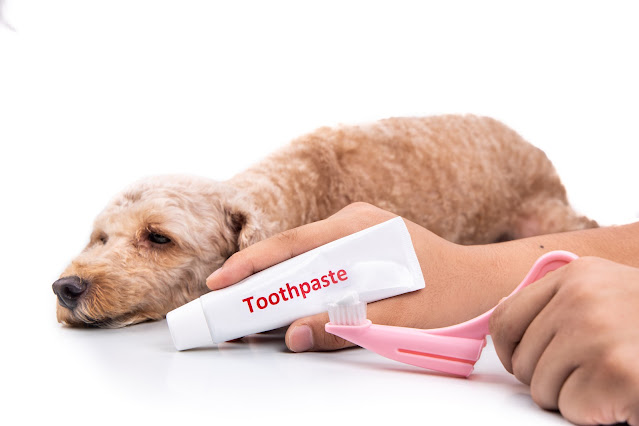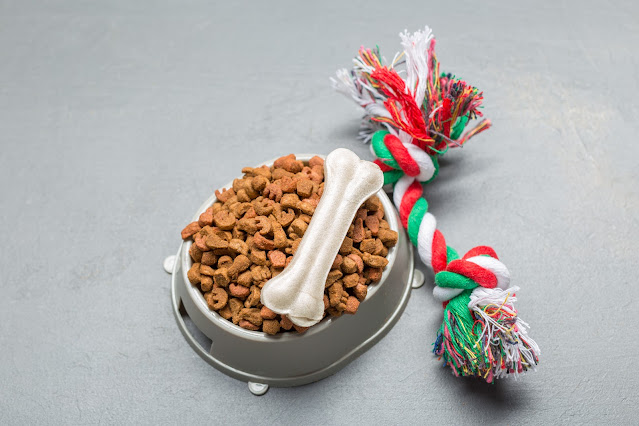Introduction
Our pets bring joy into our lives with their wagging tails, playful moves, and unconditional love. Just like us, they rely on their teeth not just for eating but also for expressing affection and playing. Maintaining your pet's dental health is very important for their overall well-being. In this article, we'll explore simple and effective ways to ensure your pet friend enjoys a lifetime of healthy teeth and a sparkling smile.
Understanding the Importance of Pet Dental Health
Dental health is not just about having white teeth, it's a key aspect of your pet's overall health. Poor oral hygiene can lead to various issues, including: gum disease, tooth decay, bad breath and tooth loss. Now that we understand the importance of pet dental health, let's dive into practical tips to keep our friends in a good health.
Regular Brushing: The Foundation of Dental Care
Just like we brush our teeth to keep them clean, your pet's teeth need regular brushing too. Here's how:
Start Slowly: Introduce tooth brushing gradually. Begin by letting your pet lick a small amount of pet-friendly toothpaste to get them used to the taste.
Pet Toothbrushes: Use a toothbrush specifically designed for pets. They come in various shapes and sizes to suit different animals.
Be Gentle: Use gentle, circular motions to brush your pet's teeth. Focus on the outer surfaces where plaque tends to accumulate.
Positive Reinforcement: Reward your pet with treats and praise after each brushing session. This positive feedback helps create a pleasant association with the experience.
Pet-Friendly Toothpaste: Making Brushing Tasty
Unlike our toothpaste, which is a big not for pets, there are specially formulated toothpaste options that your furry friend will find delicious. Choose flavors like chicken, beef, or malt to make the experience more enjoyable for them.
Dental Chews and Toys: Chew Away Plaque
Treat your pet to dental chews or toys designed to level up its overall health. These products are often designed to help reduce plaque and tartar buildup while providing an enjoyable chewing experience. Look for options approved by veterinary professionals to ensure they are safe and effective.
Regular Vet Check-ups: Professional Dental Care
Regular veterinary check-ups are not just for vaccinations, they're crucial for maintaining your pet's dental health too. Your vet will examine your pet's teeth and gums, tell you about any concerns early on. They may also recommend professional cleanings when necessary.
Dietary Considerations: Choosing Dental-Friendly Food
The right diet plays a significant role in your pet's dental health. Consider these dietary tips:
Dental Diets: Some pet foods are specially formulated to support dental health. These diets often have a texture that helps scrub teeth and reduce plaque.
Water Additives: Simple Hydration with Added Benefits
Dental water additives are a simple yet effective way to support your pet's oral health. These additives can help reduce plaque and freshen breath. Simply add the recommended amount to your pet's water bowl.
Routine Mouth Inspections: Keeping an Eye on Your Pet's Health
Regularly inspect your pet's mouth for any signs of trouble. Look out for red or swollen gums, discolored teeth, and any unusual lumps or bumps. If you notice anything concerning, consult your veterinarian directly.
Understanding Dental Warning Signs: When to Seek Help
It's essential to recognize signs that your pet might be experiencing teeth issues. If you observe any of the following, consult your vet:
Persistent Bad Breath: A sign of potential
dental problems.
Difficulty Eating: Discomfort while eating or reluctance to chew.
Excessive Drooling: Can indicate pain or irritation.
Pawing at the Mouth: A sign of discomfort
or pain.
Changes in Eating Habits: Loss of appetite or
difficulty eating.
Bleeding Gums: An indication of potential gum disease.
Conclusion
Maintaining your pet's dental health doesn't have to be a hard task. With a bit of patience, consistency, and the right approach, you can ensure your furry friend enjoys healthy teeth. From regular brushing to providing dental-friendly treats and toys, these simple tips contribute to a lifetime of good health for your beloved pet. Remember, your veterinarian is a valuable partner in your pet's well-being journey, so schedule regular check-ups and seek professional advice whenever needed. With a commitment to dental care, you're not just keeping your pet's smile bright—you're ensuring they live a happy and healthy life.










